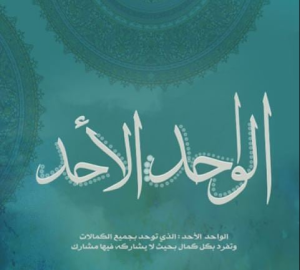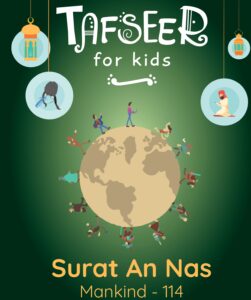
Names of Allah for Kids: Al Wadood
Names of Allah for Kids: Al Wadood
Al Wadood: The Most Loving, The Most Affectionate
An Islamic scholar called Younes Al Sadafy, tells a story of Al Imam Al Shafei, one of the greatest scholars of Islam who lived in the first century. Younes was the Imam’s student and friend.
One day, Younes and the Imam had a debate about something they were studying. They had different opinions and their discussion did not lead anywhere, and Younes left afterwards looking upset. Later, he said, the Imam approached him and, addressing him by his nickname, kindly said, “Don’t you think we can have a difference in opinion and still be brothers?”, i.e. friends and companions.
What qualities did Al Shafei show in this incident? Let us count together.
- Humility; despite being the teacher, he accepted the fact that his student could have a different opinion about the matter.
- Mercy; for he did not bear the thought of upsetting a friend or a student.
- Affection (Mawadda in Arabic); which he showed by proactively going to his friend, calling him by his nickname and kindly asking him to put aside their differences and stay friends and brothers.
This third quality is what we want to discuss in this article.
Allah’s name: Al Wadood.
If you look at translations online, you will find many that say: Al Wadood = The Most Loving. True, Allah is the Most Loving, but the more accurate meaning here is the Most Affectionate.
But what is the difference between love and affection?
Love is what you feel inside your heart for someone (or even something).
Affection is the behavior that shows this love.
So how does God show His love?
- Allah shows his love for people through the countless gifts He bestows upon us. Starting with our existence, our senses, our houses, families, and all material things, all the way to our ability to think, choose, read and learn; as well as love, laugh, cry, and enjoy the world around us.
- Allah is also affectionate in his forgiveness of our mistakes. He tells us many times in the Quran that He can forgive anything we do, if we just go back to him in regret and truthfully ask for forgiveness, not to mention His mercy on all His creatures.
[The two times Al Wadood was mentioned in the Quran, it came along with Al Ghafour (the forgiver), or Al Raheem (the Merciful)].
- Allah shows us His love through answering our prayers, even if His answer is not exactly what we wanted, He always grants us what we need, and what is best for us.
- In Surat Maryam, Ayah 96, Allah says: “Indeed, those who believe and do righteous deeds, the Most Merciful will bestow upon them affection/love”.
What’s meant here, is not only Allah’s affection mentioned above, but also love and affection from people around us. “Putting love in the hearts of people for us” is another way God shows us how much He loves us. It is when people love (and help and support you) wherever you go, and without much effort from your side that you know this is Allah’s doing.
Well then, is it possible that we, humble humans, can show affection for Allah The Almighty?
The answer is yes…
By getting to know Allah, read about Allah, remember all His gifts to you.
By remembering Allah in everything you do, and doing as Allah asks us.
By talking to people and reminding them of who Allah is, what His qualities are, and that He is capable of anything & everything.
That is simply how us humble humans can love Allah.
How else can we live by Allah’s name Al Wadood?
Allah has given us some of His qualities to live by, and one of them is Affection; not just towards Him, but towards one another.
Our prophet Mohammed (PBUH) shares with us three simple deeds to show affection to any person we love:
- To start the greeting when you meet them
- To make room for them to sit next to you/near you
- To call them by names/nicknames that they prefer
Those might sound like symbolic gestures, but they do make the other person feel loved. We could think of so many different ways to show love to someone, be it a friend, a sibling, or a parent/teacher. For example;
- Calling them on the phone just to check on them
- Mentioning a great quality they have or something nice they have done and thanking them for it
- Complimenting them (with honesty)
- Remembering something they like and bringing it for them







